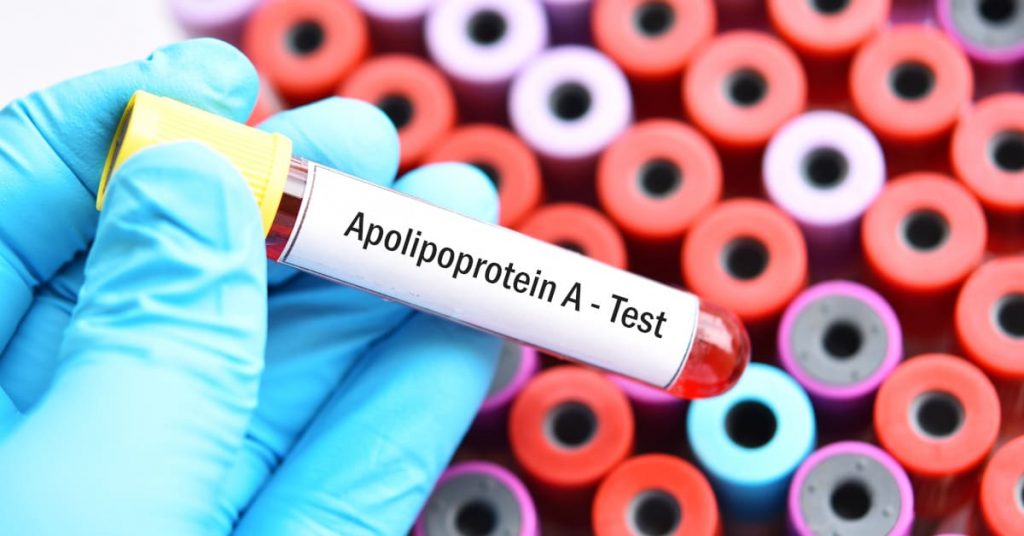Eating right for your APOE genotype is a new concept that actually works. For so long I thought I was eating a healthy diet. So why did my doctor want to prescribe medication? It turns out I was not eating right for my APOE genotype.
How many times have you heard someone suggest a high-protein or low-protein diet? Or even a high-carb or low-carb diet? Why does one diet work for some people, but not others? Henceforth none of us are the same, we all process our food differently. In fact, our genes play a vital role when determining the best approach for each of us. Everyone metabolizes food differently and the APOE gene has a lot to do with it.
With the cost of genetic testing decreasing, there is more and more information becoming available. Our genes influence many aspects of our overall health. Research has associated the APOE gene with many health conditions like obesity, cardiovascular disease, and cognitive disorders such as Alzheimer’s.
ApoE Genotype Explained
ApoE is short for Apolipoprotein E. It is a component of lipoproteins, also known as particles. Particles are responsible for transporting cholesterol and triglycerides through the bloodstream. So basically the ApoE genotype is part of the vehicle that transports nutrients throughout our body.
There are 3 types of the ApoE gene called isoforms. The 3 isoforms are E2, E3, and E4.
We all inherited one allele of the gene from each of our parents. Therefore we all have two copies of the ApoE gene. So you might have inherited the same isoform from each of your parents. Then again you may have two different alleles as well.
In total there are 6 possible genotype combinations that we could have.
-
- E2 / E2 (1%)
- E2 / E3 (10%)
- E2 / E4 (2%)
- E3 / E3 (64%)
- E3 / E4 (18%)
- E4 / E4 (5%)
ApoE Genotypes
Now let us dig into each of the 3 types. Remember each of your parents gave you one type, so it is possible to be partially 2 different types.
ApoE2 is categorized as a “Tiger” type. E2
Rare with approximately 10% of the population. Associated with a lowered risk of cardiovascular and Alzheimer’s disease is the good news. Unfortunately, at the same time, it also has a tendency for increased triglyceride levels, a higher risk of diabetes, and obesity.
Metabolism of a tiger and should eat like a carnivore.
ApoE3 is categorized as a “Bear” type. E3
The most common ApoE gene makes up roughly 65% of the population. Thus making E3 the baseline and establishing it as average risk. Other isoforms are compared to it in order to determine their own relative risk. There are not any genetic predispositions to diseases. Additionally, individuals with a copy of ApoE3 tend to respond better to statin medications.
Metabolism of a bear and should eat like an omnivore.
ApoE4 is categorized as a “Deer” type. E4
Occurs in around 15% of the general population. Carriers have a greater risk of Heart disease and Alzheimer’s disease.
Metabolism of a deer and should eat like an herbivore.
Eating right for your ApoE Genotype
No matter what type you are, a poor lifestyle, diet, smoking, lack of exercise, stress, etc… can cause destruction to your health. The suggestions are different for everyone based on the body’s ApoE genotype.
Although we cannot control everything, we can control what is in our diet. Notably, removing inflammatory food from our diet is important and applies to all genotypes. For example, sugar / high-fructose corn syrup, artificial trans fats, vegetable/seed oils, refined carbohydrates, excessive alcohol, and processed meat are all foods that cause high inflammation.
APOE Type 2: Tiger
A low-carb and high protein diet is the recommendation for ApoE2.
40% Protein
30% Vegetables and complex carbs
30% Healthy Fat
Every meal you eat should include lean protein.
Since you have an elevated risk of diabetes, you will want to keep your blood sugar under control. Drastically limit sugar and try to avoid starchy carbohydrates. And definitely do not eat them alone. Try to eat healthy fats or proteins with your carbs. By keeping your blood sugar stable, you will also reduce those out-of-control cravings. This can also help with weight loss by reducing fat.
One drink of alcohol per day might be healthy for you. Because studies have shown it may increase HDL-C and decrease LDL-C.
APOE Type 3: Bear
A mixed, balanced variety of all food groups is recommended for ApoE3.
30% Protein
50% Veggies, complex carbs, and fruit
20% Healthy Fat
Protein should be part of every meal. Include a variety of proteins. For example eggs, white & dark meat, fish, plant-based sources of protein, etc…
Include vegetables and other non-starchy carbohydrates with every meal. Avoid wheat! Because both refined grains and whole grains cause a high blood sugar spike in the glycemic index (GI). So it is best to just avoid it.
You can have some snacks, but they need to be balanced. Eat some fruit, but pair it with a protein or healthy fat.
APOE Type 4: Deer
A high-carb, low-fat, and low-protein diet. In other words, higher carbs in relation to protein and fat.
20% Protein
60% Complex carbs (primarily fruits & veggies)
20% Healthy Fat
Protein doesn’t need to be included with every meal but should be included with most. Preferably plant-based or lean meat protein.
When it comes to carbohydrates, you should eat a mixed or balanced amount of starchy and non-starchy carbs.
Don’t eliminate fat, but do limit your fat intake. Chose healthy fats like fish with high levels of omega-3 fatty acids. Individuals with E4 do not process dietary fat very well. However, Omega 3 supplements are a recommendation.
Snacks are okay, but try to spread out your meals, and consider smaller portions.
Avoid alcohol and smoking as much as possible. Because ApoE4 carriers often show high levels of vascular damage.
References
https://www.ncbi.nlm.nih.gov/pmc/articles/PMC6213759/
https://www.gbhealthwatch.com/HotTopic-Eating-Right-APOE.php
https://apoegenediet.com/public/case-studies
https://www.senzfamilychiropractic.com/eating-for-your-apoe-type/
https://mylwi.com/2018/04/12/apoe-genetics-what-your-genes-want-you-to-know/
I hope you found this article helpful. By all means, ask your friends & family if they are eating right for their APOE genotype.
And of course, remember to always consult with your doctor before making any changes =)

